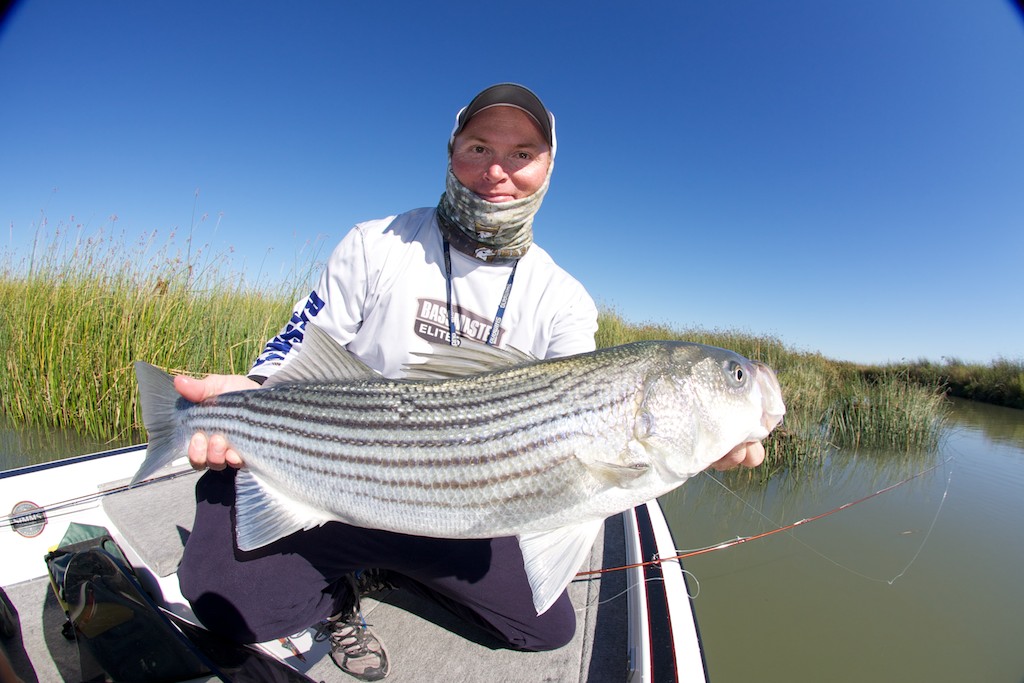August 22, 2016
By Jonathan Wright

In an upcoming vote on regulation of Striped and Black Bass that will affect California's Central Valley drainages and Delta fisheries, apparent industry interests will be clashing with organized sporting advocate groups in their policy agendas.
The Coalition for a Sustainable Delta — representing the San Joaquin Valley agricultural and commercial water diversion stake holders — has petitioned the Calif. Fish and Game Commission to adopt higher bag limits along with lower size limits for black bass and stripers.
According to pubic advocates, these actions are perceived as having a strategic intent to eradicate Black and Striped Bass, in an attempt to undermine strong historical environmental activism within the sporting community by decimating the recreational resource. It is being suggested that this is to theoretically help clear the political decks for unopposed lobbying in support of increased upstream water use by developers. The proposal increases the bag limit on stripers from 2 fish to 6 and decreases the size limit from 18 inches to 12. It increases the black bass bag limit from 5 to 10 and decreases the size limit from 12 inches to 8. These proposals are being interpreted by advocate groups to be catastrophic to breeding populations of these fish.
Advertisement
One historical roadblock for developers has been the presence of endangered species in the Delta and it's tributaries. California Chinook Salmon — a cherished sport fish whose most southern run is documented in the Guadalupe River near Santa Clara — and the Delta Smelt, an environmentally important but more obscure species, both depend on minimum stream flows from uninterrupted upstream sources. For Chinook, sufficient water ensures successful migration and navigation to natal headwater streams to spawn. For the Delta Smelt, sea water diluted to brackish conditions creates optimal conditions for this indicator species and critically important forage of larger fish, including both resident delta bass and anadromous sport fish like salmon and steelhead staging for spawning migration.
An interesting argument being forwarded by the Coalition for a Sustainable Delta is that the non native Black and Striped Bass populations are having an impact on the Delta Smelt through predation, and should be reduced or eliminated. At first glance, this would appear to be an uncharacteristic accommodation of an environmentally endangered species by an industry friendly -- though, "Green Themed" -- lobbying organization. However, public advocate groups are taking issue with this tactic. Citing data that upstream water diversion has impacts on fish mortality that are orders of magnitude greater than any direct consumption by Bass, advocates are pointing out that the Coalition for a Sustainable Delta's use of the Delta Smelt for political leverage is potentially a diversionary tactic that should be interpreted by voters and legislators as a Red Herring intended to obscure long term intent.
The Golden Gate Salmon Association has developed an alternate plan that will reduce Smelt predation, will not eradicate any species and will not attempt to reduce the populations of the stripers or black bass. The coalition is submitting a letter to the commission asking that the bag limit and size limit proposal be rejected and the alternate plan be supported. The commission has agreed to review the proposal.
Advertisement
On August 25 the the Commission will hold a special hearing on this subject at the Lake Natoma Inn at 702 Gold Lake Drive in Folsom. Area anglers are encouraged to attend and make their voices heard.

